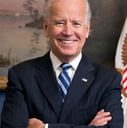Op-ed
November 23, 2001
By HAROLD HONGJU KOH
NEW HAVEN — If we should capture Osama bin Laden or his accomplices in the days ahead, where should we try them? Two unsound proposals have recently emerged. The first, and by far more dangerous, is already law: the president’s misguided and much criticized order authorizing secret trials before an American military commission. The second, more benign approach, offered by prominent international lawyers, is to try terrorists before an as yet uncreated international tribunal.
Both options are wrong because both rest on the same faulty assumption: that our own federal courts cannot give full, fair and swift justice in such a case. If we want to show the world our commitment to the very rule of law that the terrorists sought to undermine, why not try mass murderers who kill American citizens on American soil in American courts?
I hope never to see Osama bin Laden alive in the dock. As Mohammed Atef’s recent death shows, international law entitles us to redress the killing of thousands by direct armed attack upon Osama bin Laden and other Al Qaeda perpetrators responsible for the attacks of Sept. 11. But if they surrender, we should not lynch them, but rather try them, to promote values that must stand higher than vengeance: to hold them accountable for their crimes against humanity, to tell the world the true facts of those crimes and to demonstrate that civilized societies can provide justice for even the most heinous outlaws. Israel tried Adolf Eichmann. We can try Osama bin Laden, and without revealing secret information, making him a martyr or violating our own principles. President Bush’s order for secret military trials undermines these values.
I have long supported international adjudication, but that option makes little sense here. As recent efforts to try international crimes in Cambodia and Sierra Leone show, building new tribunals from scratch is slow and expensive and requires arduous negotiations. Geopolitical concerns in this case would predominate, and the impartiality of the tribunal would inevitably be questioned by some in the Muslim world. These tribunals are preferable only when there is no functioning court that could fairly and efficiently try the case, as was the situation in the former Yugoslavia and in Rwanda.
American courts have tried international criminals who have violated the law of nations — including pirates and slave traders — since the beginning of the nation. We have convicted hijackers, terrorists and drug smugglers (including Panama’s Manuel Noriega, who surrendered to American soldiers after extended military operations).
Osama bin Laden and his top aides have already been indicted in federal court. We have successfully tried and convicted Al Qaeda members and associates for attempting to blow up the World Trade Center and planning the August 1998 bombings of the American embassies in Tanzania and Kenya. With venue changes, careful security and intensive investigative efforts, Timothy McVeigh was tried, convicted and sentenced for a comparable terrorist act. As for protecting classified information, existing law gives prosecutors ample authority to prevent such information from being compromised in trial.
If any judicial system in the world can handle a case like this fairly, efficiently and openly, it is ours. If four or 400 Americans had died at the World Trade Center and the perpetrators had been caught, no one would suggest that we try the murderers anywhere but in American courts. No country with a well functioning judicial system should hide its justice behind military commissions or allow adjudication of the killing of nearly 4,000 residents by an external tribunal. Why not show the world that American courts can give universal justice?
*Harold Hongju Koh, a professor of international law at Yale, was assistant secretary of state for human rights in the Clinton administration.



